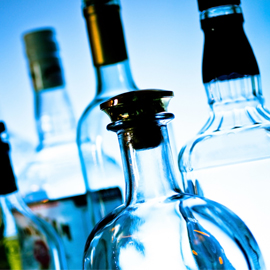
If you suffer from acid reflux disease (also called gastroesophageal reflux or GERD), it’s important to be aware of particular foods and drinks which might trigger your reflux. While every person may react differently, there are some foods and drinks that are more likely to trigger symptoms of acid reflux than others.
Some beverages you may want to be wary of if you suffer from acid reflux are:
- Coffee – Limiting your coffee consumption has been shown to reduce symptoms of reflux in people suffering from GERD. If you’re drinking several large cups of coffee every day, try slowly working your way down to just one 3-4 oz. cup in the mornings.
- Alcohol – Research suggests that even moderate intake of high-proof liquor may affect the esophagus, causing symptoms of reflux. As well, lying down soon after drinking alcohol may increase symptoms, so if you do decide to drink alcohol, it’s best to drink at least two or three hours before bedtime.
- Certain Juices – Citrus-based fruit juices, such as pineapple, orange, lemon, cranberry and grapefruit juice are associated with an increase in stomach acid production and may lead to heartburn.
- Soda – Sodas and other carbonated beverages, specifically caffeinated ones, are one of the biggest risk factors for acid reflux. Carbonation causes distension in the stomach, which increases pressure on the esophageal sphincter, leading to reflux.
What Can I Drink?
There are certain beverages which don’t cause symptoms of reflux, and in some cases, these beverages have been known to improve symptoms. These beverages include:
- Water
- Certain teas, such as herbal tea
- Non-citrus juices like apple, carrot and cabbage juice, which are less acidic than citrus-based juices
- Goat and skim milk
If you have acid reflux disease, it’s best to avoid or, at least, limit your consumption of problem beverages. However, since individuals react differently to a particular drink, you can successfully attempt to reduce symptoms by knowing your personal tolerance regarding problem beverages. One way you can determine this is by keeping a log of what you drink and when you experience symptoms of reflux. As well, certain diagnostic procedures, such as an upper endoscopy, may help to pinpoint your specific triggers and causes of reflux.

Leave a Reply